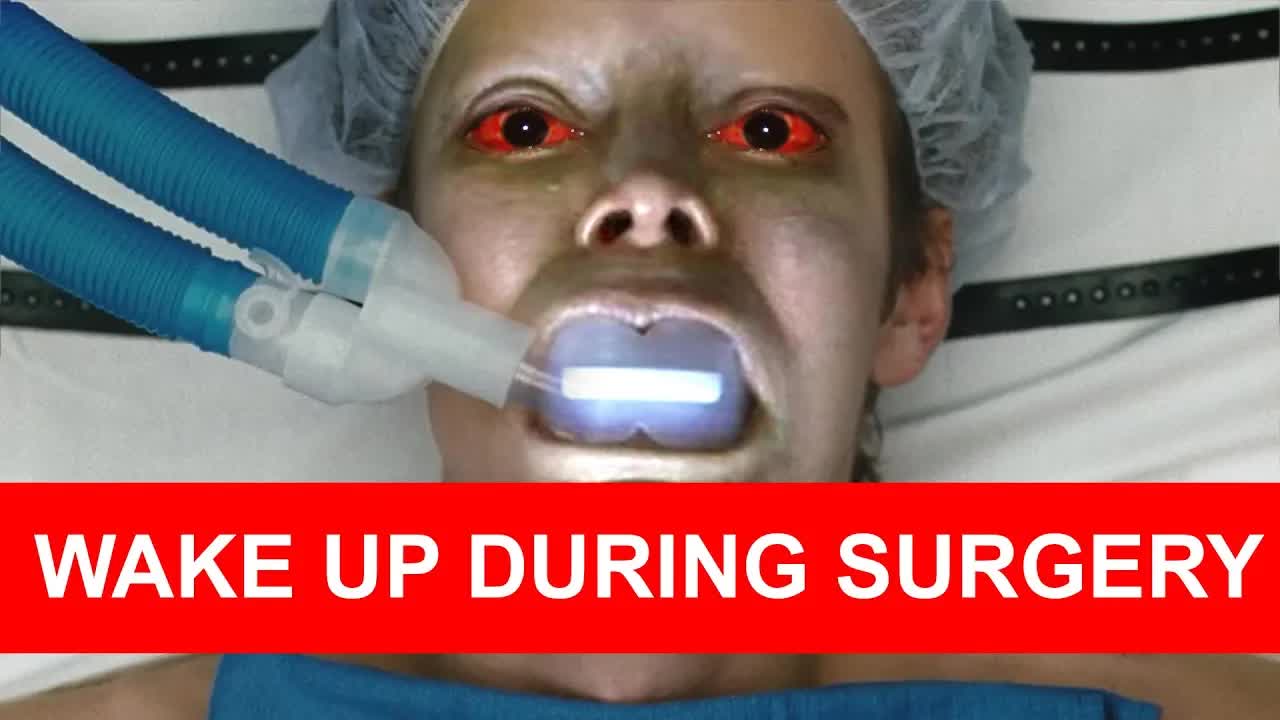Imagine waking up in the middle of a surgery, trapped in your own body, unable to scream or move.
The sheer horror of such an experience is hard to fathom.
Yet, for approximately 30,000 patients each year, this nightmare becomes a grim reality.
While general anesthesia is designed to keep patients comfortably unconscious during routine procedures, a small percentage find themselves experiencing what’s known as anesthesia awareness—a phenomenon that can turn a surgical operation into a living hell.
Every year, over 21 million people undergo surgeries that require general anesthesia.
Typically, these patients drift into a deep sleep, blissfully unaware of the medical interventions taking place.
However, the unfortunate few who awaken during surgery face an unimaginable ordeal.
So, what causes anesthesia to fail?
And why is being awake during surgery so perilous?
To understand this phenomenon, we must first explore how anesthesia functions.
It involves a complex cocktail of drugs, each playing a crucial role.
Anesthetics induce sleep and suppress memory formation, relaxants paralyze the muscles, and analgesics block pain signals.
An anesthesiologist carefully crafts a unique combination tailored to each patient, aiming to ensure they remain completely unconscious while preventing any adverse effects on vital bodily systems.
Determining the correct dosage of these medications is no easy task.
It hinges on various factors, including the patient’s health, lifestyle, and individual reactions to drugs.
This complexity can lead to mistakes, with potentially devastating consequences.
If the balance of anesthetic agents is off, patients may awaken during the procedure, experiencing anything from minor discomfort to excruciating pain.
In some cases, a patient may regain consciousness but remain unable to move or feel pain.
This scenario typically arises when the anesthetic dosage is too low, but the pain management medications are sufficient.
Thankfully, medical professionals often detect this early and can adjust the anesthesia accordingly.
However, if a patient wakes up, feels pain, and cannot communicate due to paralysis, the situation becomes dire.
This terrifying condition can result in profound psychological trauma, leading to long-term mental health issues.
The haunting experiences of those who have endured anesthesia awareness are not just isolated incidents.
In 2012, anesthesiologists in the UK and Ireland compiled testimonies from around 300 patients who reported nightmarish memories of their procedures.
One harrowing account details Carol Veyer, who awoke during eye surgery, unable to signal for help as she endured five agonizing hours of torment.
Another patient, June Carson, felt the surgeon’s knife cutting into her flesh but could do nothing to alert anyone.
Such accounts reveal a chilling truth: many patients fear paralysis more than the prospect of pain itself.
As one study author noted, while pain is a familiar sensation, the feeling of being trapped in one’s body is unfathomable.
The psychological scars left by these experiences can be profound, leading some individuals to harbor resentment towards their medical providers.
The horror stories don’t end there.
In one instance, a patient undergoing leg surgery was fully conscious and attempted to signal his distress by wiggling his toes.
Unfortunately, the surgeon dismissed this movement as mere reflex, continuing with the procedure until the patient fell gravely ill.
He later received compensation, but the emotional damage was irreversible.
Perhaps the most disturbing revelation is the historical neglect of newborns during surgical procedures.
For years, infants underwent operations without adequate anesthesia, based on the mistaken belief that their nervous systems were too underdeveloped to process pain.
It wasn’t until the late 20th century that medical professionals recognized the capacity of even the tiniest patients to feel pain, leading to a significant shift in practice.
Given these frightening realities, one might consider avoiding surgery altogether.
However, it’s essential to remember that the likelihood of experiencing anesthesia awareness is extremely low, ranging from 0.008% to 0.2%.
Moreover, most patients who do awaken during surgery have little to no recollection of the event, as it often occurs just before or immediately after the procedure begins.
Advancements in medical technology offer hope for reducing the occurrence of anesthesia awareness.
New monitoring techniques that track auditory responses in patients may soon allow doctors to gauge consciousness levels more accurately, even when patients are paralyzed.
Additionally, some innovative surgical methods enable doctors to perform complex operations on fully conscious patients, eliminating the need for general anesthesia altogether.
As we move forward, the hope is that these developments will lead to safer surgical experiences, free from the specter of waking up in agony.
With continued innovation, we may one day look back on anesthesia awareness as a relic of the past, transforming the surgical landscape into a more humane and compassionate realm where patients can undergo procedures with confidence and peace of mind.































